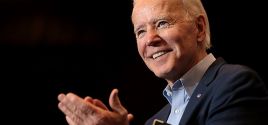Agent Says Padilla Not Warned Of His RightsCBS4/APJul. 22, 2006 |
Popular 
Biden Commutes Sentences of 37 of 40 Federal Death Row Inmates - Excludes Robert Bowers, Dylann Roof

Putin Accuses 'Ethnic Jews' of Tearing Russian Orthodox Church Apart

U.S. 'Shoots Down Own Jet' Over Red Sea in 'Friendly Fire Incident'

Ohio Senate Passes Bill Aimed at Outlawing Criticism of Israel, Criminalizing Gospel

Saudi National Rams Car Into Germans at Christmas Market in Suspected Terrorist Attack [UPDATED 2X]
 (CBS4/AP) MIAMI Testimony from FBI agents in Miami revealed Tuesday that Miami terror suspect Jose Padilla was never told he had the right to walk out of his interview with agents, all while testifying that he was originally cooperative with them. Jose Padilla didn't immediately request a lawyer or try to cut off an interview with the FBI until it had lasted nearly three hours, the agents testified Tuesday at a hearing on whether Padilla's rights were violated during the May 2002 session. In fact, they said, Padilla was initially talkative and cooperative, raising hopes among the four agents that they might persuade him into providing them with information about al-Qaeda terrorism plots and operatives. Padilla was detained by the agents after stepping off a flight from Zurich, Switzerland at Chicago's O'Hare International Airport. "A home run for us would have been to gain his cooperation, to discuss why he was in the United States," said Craig Donnachie, a New York-based FBI agent whose job was to take notes of the interview. Donnachie and a second FBI agent, Robert Holley, testified that Padilla did not request the presence of an attorney until he was accused of involvement in a terrorism plot that included use of a radioactive "dirty bomb." That didn't happen until almost three hours into the interview, they said. Both agents also said that Padilla never specifically requested that he be allowed to leave the interview. But they added that they never specifically told him he would be allowed depart, either. "We were never going to allow him to leave the airport," Donnachie said. The testimony came in the second day of a hearing on a defense motion claiming that all of Padilla's statements in that May 8, 2002 interview should be thrown out because Padilla was not advised of his rights as a suspect. Prosecutors counter that Padilla was not placed under arrest until the end of the interview and voluntarily spoke with the agents until that point. Padilla originally made headlines when the federal government held him for three years in custody without filing charges against him. In November of 2005 he arrived in Miami, accompanied by a barrage of federal agents and television cameras, as he was transferred to the federal prison in Miami. Donnachie said the four agents used rapport-building techniques to put Padilla at ease, such questions about his personal life. But as Padilla's answers grew evasive about overseas associates and the source of more than $10,500 he was carrying, the tone became more confrontational. "It's a technique to get a little closer and raise your voice," Donnachie said. U.S. Magistrate Judge Stephen T. Brown tentatively scheduled closing arguments on the issue for Thursday. Padilla, a U.S. citizen and former Chicago gang member, and two others are scheduled to stand trial on terrorism charges this fall, although Padilla has asked that the trial be delayed until January. A month after his arrest in Chicago on a material witness warrant, President Bush designated Padilla as an enemy combatant. He was held in military custody for 31/2 years, until he was added in late November as a defendant in the existing Miami terrorism support case. The Miami case does not mention the "dirty bomb" allegations or later government claims that Padilla intended to fill apartments in high-rises with natural gas and blow them up. |



